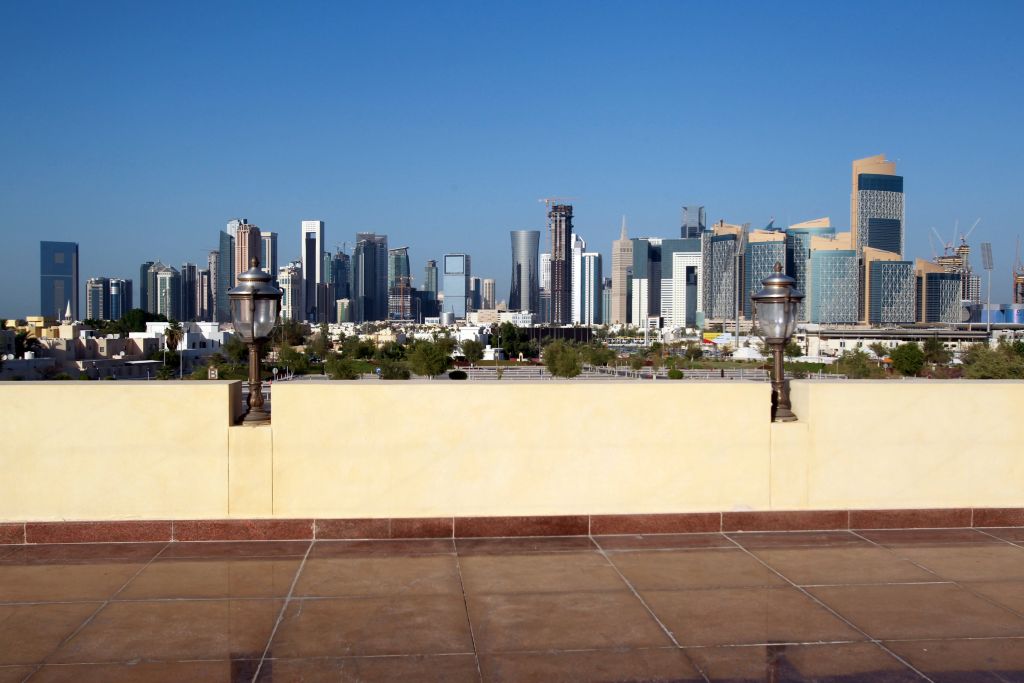Authorities in Doha enjoyed three features: media, money and an effective diplomacy. These elements helped compensate for Qatar’s small size, small population and weak army. In its crisis, however, Qatar appears small, weak and an easy target. So what happened?
Before answering, we have to say that Qatar managed with great efficiency in imposing itself through its three characteristics and other reasons, such as exploiting the vacuum in the region. Egypt under former President Hosni Mubarak avoided getting involved in conflicts. It responded to Doha’s blatant meddling and incitement with calm diplomacy and limited media coverage. Instead of confronting it directly, Saudi Arabia was busy dousing fires that Qatar ignited in Afghanistan, Lebanon, Yemen and within the Kingdom itself.
We do not mean to undermine Qatar when we speak of its small size and population. Singapore is a small and great country and it is 12 times smaller than Qatar and has twice its population. Qatar is also bigger than Lebanon.
What we are criticizing is the Qatari government’s belief that it is a major regional force that wants to change the region and impose its policy without taking into consideration its own size or respecting the countries themselves.
Qatar wants to change the region and it does not implement anything that it is trying to impose by force on others. It supports and funds contradictory ideologies, from democracy to Islamic extremism, on Egypt and Tunisia.
These multiple and contradictory personalities or the Qatari schizophrenia has cost it its credibility in the world where it has a liberal front on the internal scene and an extremist Brotherhood one in its foreign policy.
A capital of contradictions, between its support and financing of extremists in al-Anbar in Iraq and its hosting of leaders, who reside side-by-side in Qatar with the US military base that is the launchpad for jets shelling Falluja and al-Ramadi on a daily basis. Along with Iran, Qatar is responsible for supporting the Palestinian division and supporting Hamas against the Palestinian Authority. It hosted Hamas leaders and the Israeli office in Doha.
For years, Doha sought to back Saudi Arabia’s enemies in Yemen, Houthi extremists and some northern Yemen tribal leaders, who fought the Kingdom at the end of the last decade. It funded Saudi opposition figures inside and outside of the country.
At the same time, Qatar spoke of brotherly ties and other rubbish and empty speeches. The silence and patience of regional countries over the Qatari government allowed it to go too far until four countries finally decided to turn to the source of the chaos instead of confronting its pawns.
Qatar’s three features of media, money and diplomacy have become the features of the four countries that gave Doha a taste of its own medicine.
Qatar suddenly found itself the figure of scorn and ridicule. It sensed the isolation and fear over its security and existence. As time passes and as the problems increase, it will gradually discover that it is indeed a small country, that it is worthless without its Gulf and Arab brothers and that it cannot live in peace.
Qatar discovered that the al-Udeid base will not protect it. Its threats to turn to Iran, its invitation to the Turks, its Brotherhood media, its investment of $170 billion in the West and its contacts in Saudi Arabia, Bahrain and Kuwait will not intimidate its rivals. All this will not grant Doha peace of mind.
Qatar needs to understand the truth of the hard world. It needs to realize the truth that it created chaos in the region not because it was strong, but because its neighbors have been patient.
Qatar’s three features have been stripped by the four countries. Combined, they have a stronger media, more money and a faster and more vital diplomacy.
The extent of Qatar’s crisis and failure can be seen after its government resorted to exiled Foreign Minister Sheikh Hamad bin Jassem, who is residing in Washington, and how he had to relay a message through CNN to US President Donald Trump.
